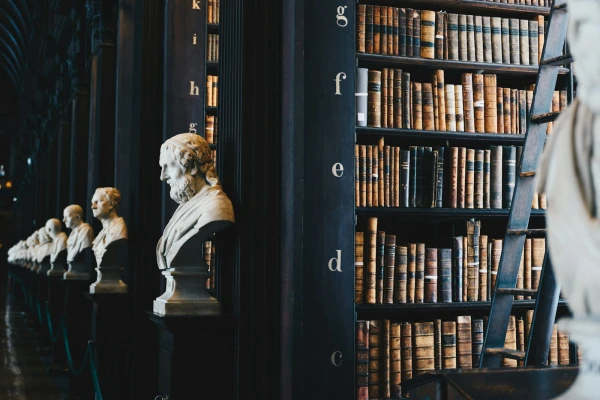Tears are often seen by some as a symbol of weakness. But in Islam, crying is more than just an emotional outburst. It can be a sign of faith, an expression of piety, and even an act of worship. The Qur'an and Hadith contain many accounts of tears that not only touch the heart but also open the doors to paradise.
The Prophet Muhammad's Tears in the Midnight Hours
Prophet Muhammad ﷺ is the chosen one, dearly loved by Allah. But have we ever realized that the Prophet ﷺ often wept? Especially during his night prayers.
In a hadith narrated by Ibn Hibban, it is mentioned that the Prophet ﷺ once cried through the night while reciting the verse:
"If You punish them, indeed they are Your servants; but if You forgive them, indeed it is You who is the Exalted in Might, the Wise."
(Qur'an, Al-Ma'idah: 118).
The tears of the Prophet did not fall due to worldly sorrow, but out of deep fear and love for Allah. He wept because he comprehended the greatness of Allah’s attributes: The Most Forgiving and The Most Just.
Tears That the Fire of Hell Will Not Touch
Islam does not forbid crying. In fact, there are tears that protect one from the fire of Hell.
In a hadith narrated by At-Tirmidhi, the Prophet ﷺ said:
“Two eyes will never be touched by the fire of Hell: the eye that weeps out of fear of Allah, and the eye that stays awake in the path of Allah.”
Such tears born from the fear of Allah are immensely noble. They represent a spiritual awareness that we are weak servants, full of sins, and always in need of His mercy.
The Companions Who Wept While Reading the Qur'an
It was not only the Prophet ﷺ who wept; the companions were also known to shed tears easily upon hearing the words of Allah. Umar ibn Khattab, a strong man feared by his enemies, once sobbed while reading the Qur'an.
It is narrated that when Umar read verses 7-8 of Surah At-Tur, he fell ill for several days due to the overwhelming fear of the Day of Judgment. Despite his reputation as brave and resolute, his tears were a sign of strong faith. They reflected the humility before the majesty of Allah.
The Ordinary Person’s Tears That Stir the Heavens
Crying in Islam is not reserved for prophets and companions alone. Anyone can experience closeness to Allah through sincere tears.
An early scholar among the Tabi'in, Abu Hazim, once said, “I prefer tears more than gold and silver because tears can save me from the fire of Hell.”
Subhanallah, how beautiful the understanding of these early scholars was—they knew that a single tear shed sincerely for Allah is more precious than all the wealth of the world.
Tears From the Fear of Hell
One of the most noble forms of crying is tears shed from the fear of Hell. The Prophet ﷺ said:
“No one cries out of fear of Allah except that Allah will forbid the fire of Hell from touching his face.” (Hadith narrated by Al-Hakim)
Crying from the fear of Hell is not despair; rather, it is a sign of a living heart, one that is conscious that this life is temporary and that the hereafter is the eternal home.
Tears Beloved by Allah
In Surah Al-Isra’, verse 109, Allah praises those who weep upon hearing the Qur'an:
"They lower their voices before the Qur'an, and they weep."
Allah loves His servants with gentle hearts — hearts that are easily moved by truth, that weep when remembering their sins, and that yearn to return to Him.
Making Tears a Path to Repentance
Tears are not merely emotional expressions but a gateway to sincere repentance. Many people who had been negligent in their faith have cried during their prostrations and, from that moment, transformed into better individuals.
Weeping during the quiet of the night, when all else has fallen asleep, is the most honorable moment to pour out one’s heart to Allah. It is then that tears become the most sincere language of the soul.
“When a person cries to Allah, He responds to those tears with mercy and compassion.”
Conclusion
In a world that often regards tears as a sign of weakness, Islam honors them. But not just any tears — tears shed for Allah, out of fear, love, and longing for Him.
So, if your heart is touched when hearing the Qur'an or chokes up recalling your past sins, do not hold back those tears. Let them flow, for they may be the moments when Allah accepts your repentance.
Tears are not weakness; in Islam, they can be strength and a path to paradise.













Responses